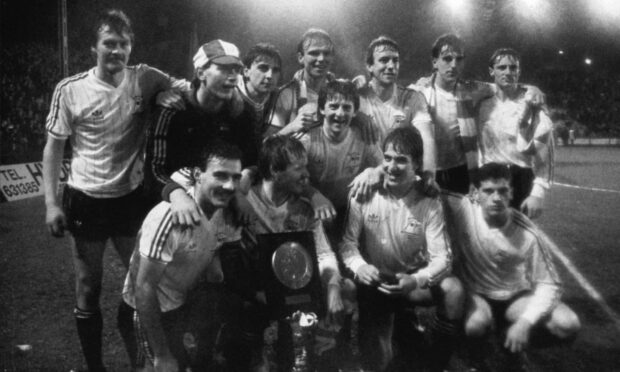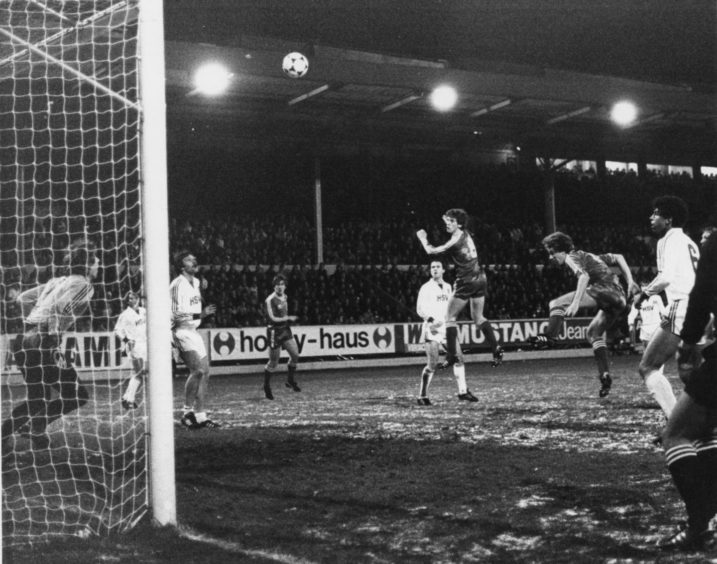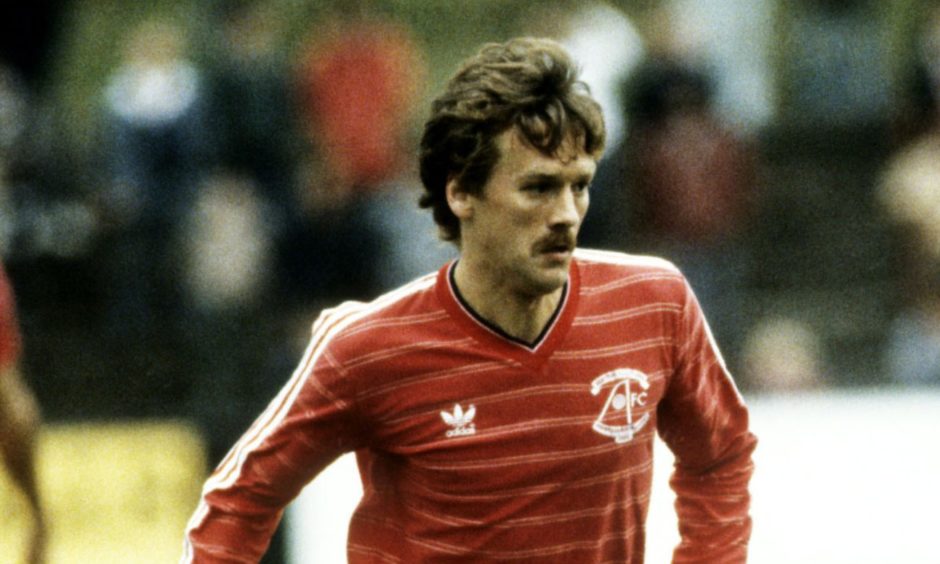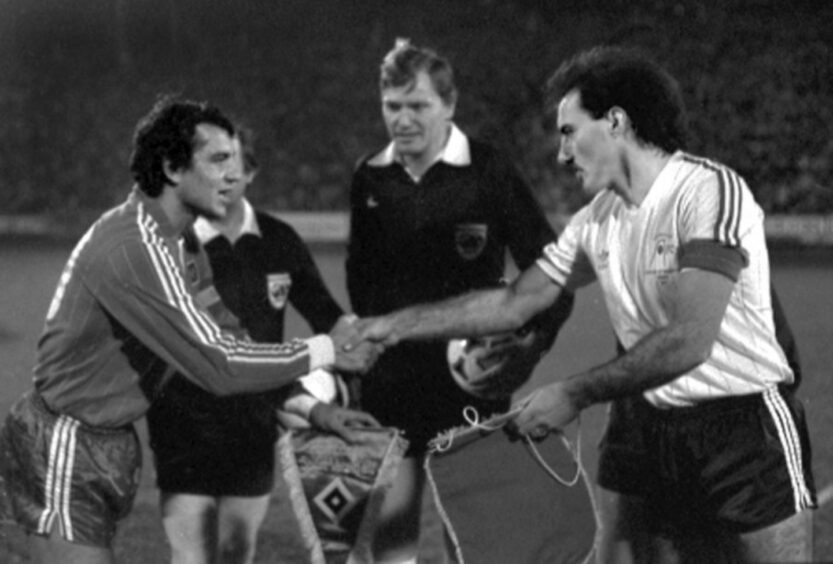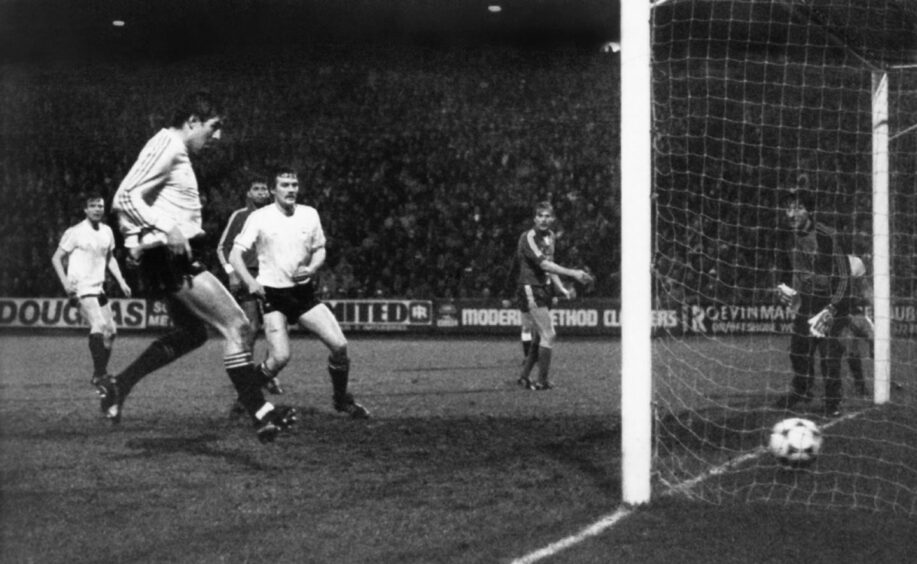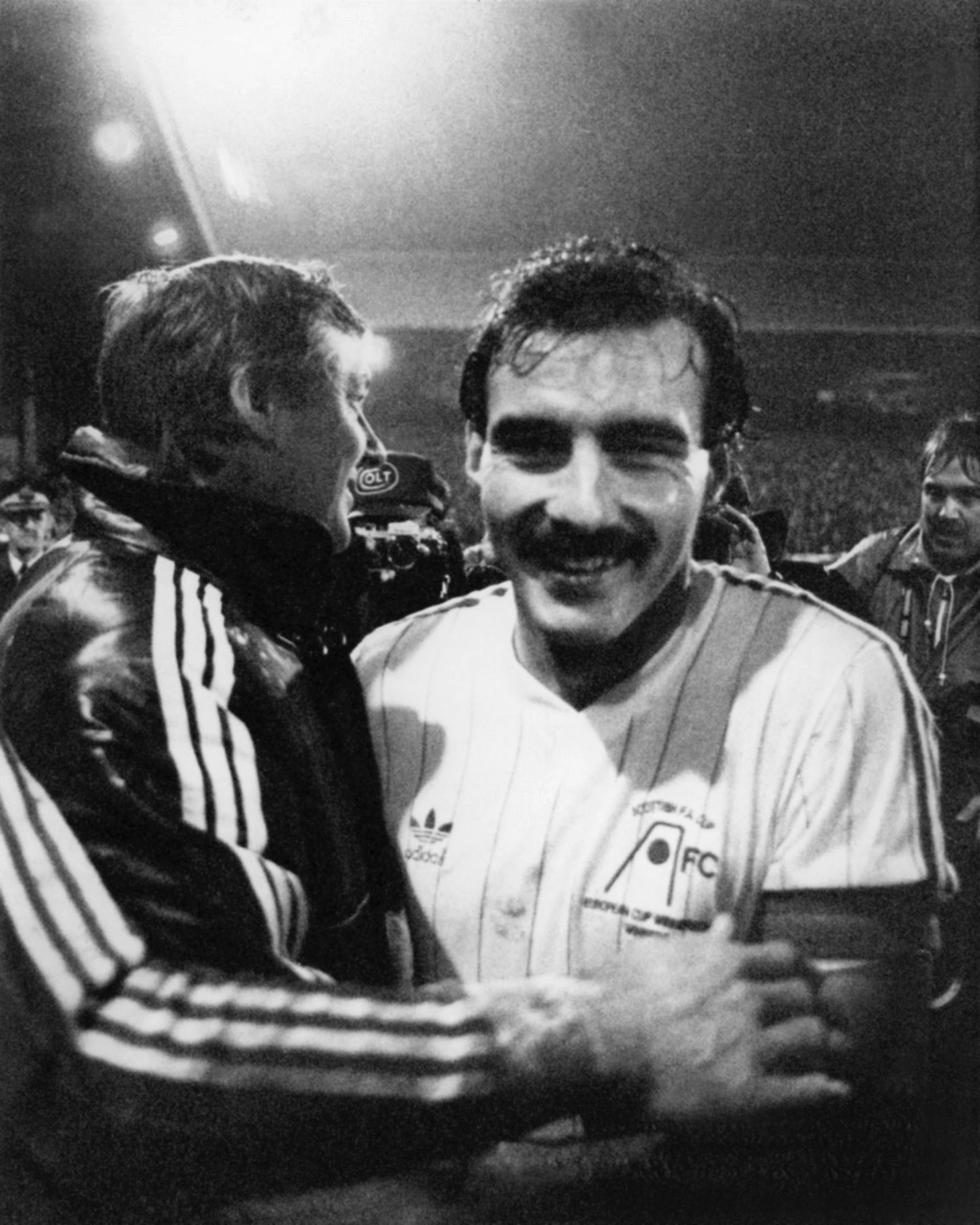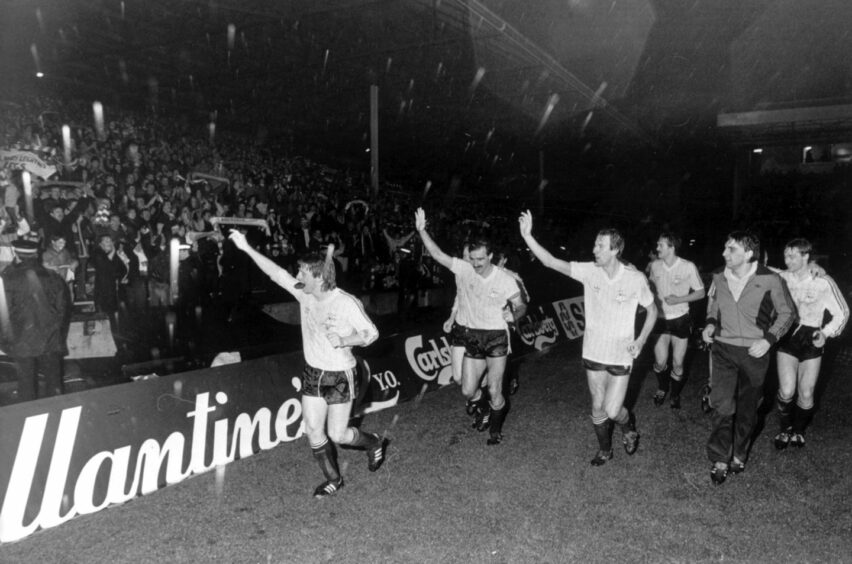There was a mixture of elation, relief and determination to keep chasing bigger ambitions at Aberdeen FC in the summer of 1983.
The Gothenburg Greats may have conquered the revered Real Madrid on a magical May evening in Sweden to lift the European Cup Winners’ Cup.
But the manner in which Alex Ferguson berated most of his players just 10 days later after they beat Rangers in the Scottish Cup final at Hampden – he called it “a disgrace of a performance” – demonstrated he wasn’t prepared to rest on his laurels while there were fresh mountains to climb.
The Dons edged to victory, following an extra-time goal from Eric Black, but their manager claimed that Willie Miller and Alex McLeish had defeated their Ibrox rivals on their own – an outburst for which he subsequently apologised to his team – and, even as plaudits poured in, he plotted, planned and prepared for the new campaign with trademark intensity and industry.
After all, there was the little matter of the European Super Cup to occupy his mind – a contest with added piquancy because their opponents, Hamburg, had knocked Aberdeen out of Europe (in the Uefa Cup) two years earlier.
By the end of 1983, the Dons had been voted Best Team in Europe in the annual award made by sports manufacturer Adidas and the magazine France Football.
Nor was there any arguing with that assessment, given how they responded to having the chance to prove it in the established fixture between the holders of the European Cup and the Cup Winners’ Cup.
Hamburg were a formidable force, who had shown their qualities in prevailing over Juventus 1-0 with a goal from internationalist Felix Magath, so Ferguson appreciated it would be a serious test of his men’s credentials when they travelled to Germany for the first leg.
But this Aberdeen collective was a feisty, fearless group who had risen through the ranks together and forged an impressive camaraderie,
This allowed them to shrug off some dismissive remarks from Hamburg manager Ernst Happel, insisting they would do their talking where it counted.
They were also bolstered by the return of influential player Dougie Bell, who had excelled in Aberdeen’s quarter-final triumph over Bayern Munich, but had been ruled out of the proceedings in Gothenburg because of injury.
He was fired up after his recovery and, as you might expect from this magnificently competitive individual, pledged to do his utmost to help the Dons become the first-ever Scottish club to win two European trophies.
He said: “The final was played over two legs and the first one was in Germany.
“We feared nobody and I saw these games, in part, as consolation for me missing the Cup Winners’ Cup final and a medal.
“I was at the top of my game again and I couldn’t wait for it.
“I remember an unspectacular first leg which ended 0-0.
“The weather was horrendous with torrential rain and we were forced to defend well with Willie Miller and Jim Leighton prominent, as they so often were throughout these years.
“But we got the job done, even if was solid rather than spectacular.
“Every ticket was sold for the second leg at Pittodrie and the situation was made for us with a full house, a huge occasion, and glamorous opposition.”
The denouement arrived on Tuesday December 20: an opportunity for the supporters to show their admiration for their heroes at the climax of an unprecedented year while revelling in another of those classic occasions where Pittodrie was transformed into a vociferous theatre of dreams.
But there was another twist in the tale, which only emerged afterwards.
And the headline in Wednesday’s Press & Journal – “Oh Baby, We Did It” – offered a clue to the double joy celebrated by their talismanic performer, Peter Weir.
The story revealed how, even as he was orchestrating some of the pivotal attacks in the contest, the winger was blissfully unaware that he had just become the father of a bouncing baby boy.
The Dons are the Super Champions of Europe and nobody can say they didn’t deserve it.”
Press and Journal match report
The paper said: “Little Stuart Weir was born 44 minutes before the kick-off at Pittodrie last night. But Peter wasn’t given the news until he was back in the dressing room, clutching his superstar medal.
“The birth meant that Peter missed the after-match celebrations at skipper Willie Miller’s bar.
“He went straight to Aberdeen Maternity Hospital to see the baby and mum Mary, who were both reported to be ‘doing well’.
“It was left to Willie to comment: ‘We were all delighted for him and his family.
“I think, when you have news like this, it’s always very nice. But when you have it on an occasion like this, it makes it a wee bit more special.”
It wasn’t the only perfect delivery for Weir on a transcendent evening.
Despite the wet weather, he was in his element and one of his typically penetrating runs towards the King Street end at Pittodrie produced the cross that was cut back by John Hewitt for Neil Simpson to break the deadlock early in the second half, after a tense, nervous opening 45 minutes.
That was soon followed by a corner kick from Weir, with Miller squaring the ball to Mark McGhee who doubled the hosts’ advantage.
Hamburg were left bewitched and bewildered by the Scots, who could have won far more comprehensively if they had converted any of the numerous other chances they created.
This was history in the making and, as the P&J stated: “The Dons are the Super Champions of Europe and nobody can say they didn’t deserve it.”
It was also a tale of redemption and rejoicing for Bell, who had rebounded from heartbreak and frustration and was understandably one of the happiest men in the Aberdeen ranks as the Hamburgers were cooked.
He said: “I remembered the disappointment of being on the bench for the return leg against Bayern in the previous season’s Cup Winners’ Cup, but I was convinced that I would start in the Super Cup second leg – and I did.
A super European Super Cup showing
“It was a great consolation and there was a terrific atmosphere at Pittodrie that night, which is something none of us will ever forget.
“We won reasonably comfortably and we were in control of the match, even though we missed loads of chances.
“And we did something that no other Scottish club had ever achieved.”
Alex Ferguson acknowledged the impact of the crowd in the aftermath and praised the work ethic his personnel had shown in tough conditions.
He said: “In the first half, we allowed them too much room on the flanks.
“However, that was sorted out at the interval and, when the first goal came (in the 46th minute), it changed the whole complexion of the game.
“We really threatened them in the last third of the pitch with Peter Weir causing problems.
“And Gordon Strachan showed all his arrogance when we needed it, which was a major factor in the second-half performance.”
These exhilarating scenes marked a three-year period of constant improvement for the Dons under the indefatigable Ferguson.
And while no Scottish club has managed to collect another European trophy in nearly four decades since the halcyon period in 1983, nobody in the Granite City will ever forget that incident-packed, roller-coaster ride when Aberdeen won three cups in the space of seven months.
More like this:
Aberdeen’s ’80s heroes could have lined up in Escape To Victory
Steve Archibald followed in Diego Maradona’s boots at Barcelona
When Jimmy Greaves almost played for Aberdeen under Sir Alex Ferguson
